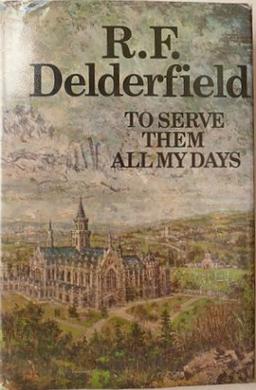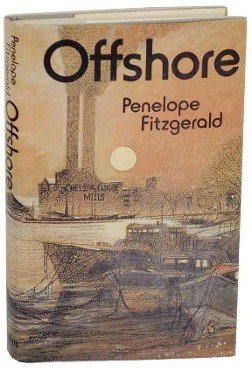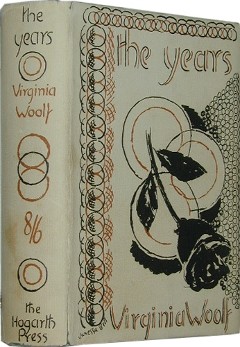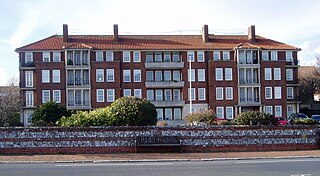Plot summary
Cyril Annick and his wife Grace have been running Downs Park for many years. Both are universally respected and loved by staff and pupils alike. Unforeseen problems for the school arise when the idiosyncrasies and compulsions of individual members of the staff threaten to upset life at the school. There is Rupert Massinger, the second master, whose womanizing makes victims of both the school secretary and the headmaster's grown-up daughter. Also, with money he has inherited Massinger is planning to take over the school and gently force the Annicks into early retirement. To everyone's surprise, as a strategic move, Massinger and his wife, who also teaches at the school, decide to resign, to reculer pour mieux sauter.
Elspeth Murray, the middle-aged French mistress, has been feeling extremely lonely since her husband's death and has only taken up teaching recently to find some sort of distraction. At first, her irrational sexual attraction to Betty Cope, a pretty young lesbian who assists Grace Annick in her capacity as Matron, causes some eye-rolling. Later, when a series of petty thefts occurs everyone suspects a pupil to be stealing his schoolmates' things. However, Murray turns out to be a kleptomaniac, and when she is caught in the act she thinks she cannot cope any longer and commits suicide in the school swimming pool.
Leo Canning, the young science master whose humble social background and troubled childhood make it difficult for him to adapt to the thoroughly bourgeois atmosphere of the school, falls in love with Penelope Saxton, the headmaster's young widowed daughter, and in the end they get married. However, it takes Penelope a long time until she makes up her mind to spend the rest of her life with Canning. In the meantime, she is courted by the father of the youngest staff member, a baronet called Sir James Pettifer whose aristocratic ways she finds quite alluring.
More trouble appears with the arrival of Norman and Delia Poole, who have come to replace Massinger and his wife. It does not take the staff long to discover that Delia is a hopeless alcoholic whose pathetic attempts at rationalizing her addiction are embarrassing to everyone who happens to witness them. She has to give up her art classes quite soon again and over the following months mainly stays at their home on the school grounds. Finally, although he is a popular teacher, Norman Poole hands in his notice to be able to care for his wife full-time.
Cyril Annick has no intention to retire, let alone hand over to Massinger. However, when his wife suffers a mild stroke he sees it as the last straw and willy-nilly sells out to him. The Annicks move to a flat in nearby Eastbourne, where shortly afterwards Grace has another stroke and dies. Not yet 60, Cyril Annick moves to London to be near his daughter and son-in-law.

Jane Eyre is a novel by the English writer Charlotte Brontë. It was published under her pen name "Currer Bell" on 19 October 1847 by Smith, Elder & Co. of London. The first American edition was published the following year by Harper & Brothers of New York. Jane Eyre is a bildungsroman that follows the experiences of its eponymous heroine, including her growth to adulthood and her love for Mr Rochester, the brooding master of Thornfield Hall.

Penelope Mary Fitzgerald was a Booker Prize-winning novelist, poet, essayist and biographer from Lincoln, England. In 2008 The Times listed her among "the 50 greatest British writers since 1945". The Observer in 2012 placed her final novel, The Blue Flower, among "the ten best historical novels". A.S. Byatt called her, "Jane Austen’s nearest heir for precision and invention."

Boy: Tales of Childhood (1984) is an autobiography written by British writer Roald Dahl. This book describes his life from early childhood until leaving school, focusing on living conditions in Britain in the 1920s and 1930s, the public school system at the time, and how his childhood experiences led him to writing children's books as a career. It concludes with his first job, working for Royal Dutch Shell. His life story continues in the book Going Solo.

Nigel Molesworth is a fictional character, the supposed author of a series of books about life in an English prep school named St Custard's. The books were written by Geoffrey Willans, with cartoon illustrations by Ronald Searle.

Goodbye, Mr. Chips is a 1939 romantic drama film starring Robert Donat, Greer Garson and directed by Sam Wood. Based on the 1934 novella of the same name by James Hilton, the film is about Mr. Chipping, a beloved aged school teacher and former headmaster of a boarding school, who recalls his career and his personal life over the decades. Produced for the British division of MGM at Denham Studios, the film was dedicated to Irving Thalberg, who died on 14 September 1936. At the 12th Academy Awards, it was nominated for seven awards, including Best Picture, and for his performance as Mr. Chipping, Donat won the award for Best Actor.
The Downs Malvern is a private prep school in the United Kingdom, founded in 1900. It is located on a 55-acre (22 ha) site in Colwall in the County of Herefordshire, on the western slopes of the Malvern Hills. The school takes children aged 2 to 13 and comprises a nursery, kindergarten, pre-prep, and preparatory school; the preparatory school takes both day students and boarders. The Headmaster since 2009 has been Alastair Cook, who is a member of the Boarding Schools Association and the IAPS. Fees are currently up to £21,471 pa for full boarders and up to £16,221 pa for day pupils.

His Family is a novel by Ernest Poole published in 1917 about the life of a New York widower and his three daughters in the 1910s. It received the first Pulitzer Prize for the Novel in 1918.

Paradise is a 1998 novel by Toni Morrison, and her first since winning the Nobel Prize in Literature in 1993. Paradise completes a "trilogy" that begins with Beloved (1987) and includes Jazz (1992).

Carry On Teacher is a 1959 British comedy film, the third in the series of 31 Carry On films (1958–1992). It was released at the Plaza Cinema in London on 3 September 1959. It features Ted Ray in his only Carry On role, alongside series regulars; Kenneth Connor, Charles Hawtrey, Kenneth Williams and Hattie Jacques. Leslie Phillips and Joan Sims make their second appearances in the series here, having made their debuts in the previous entry, Carry On Nurse. A young Richard O'Sullivan and Larry Dann – making the first of his four Carry on appearances – turn up as pupils. In 2023, Dann dedicated a chapter of his autobiography "Oh, What A Lovely Memoir" to share his memories of this production. The film was followed by Carry On Constable 1960.

To Serve Them All My Days is a novel by British author R. F. Delderfield.

Offshore is a 1979 novel by Penelope Fitzgerald. Her third novel, it won the Booker Prize in the same year. The book explores the emotional restlessness of houseboat dwellers who live neither fully on the water nor fully on the land. It was inspired by the most difficult years of Fitzgerald's own life, years during which she lived on an old Thames sailing barge moored at Battersea Reach.

Bloomability is a children's book by Sharon Creech, first published in 1998; the main character is Dinnie Doone, a young girl who at the start of the novel lives with her semi-nomadic family in the modern-day United States of America. She is given the opportunity to attend a boarding school in Lugano, Switzerland, where the majority of the storyline takes place. This school is inspired by The American School In Switzerland, where Creech taught English.

The Years is a 1937 novel by Virginia Woolf, the last she published in her lifetime. It traces the history of the Pargiter family from the 1880s to the "present day" of the mid-1930s.

Clovelly-Kepplestone was a private boarding school for girls in Eastbourne, Sussex. It existed from 1908 until 1934 and was located in Staveley Road, just off the seafront in the Meads district of the town. Known to staff and pupils as "Clo-Kepp", it came about following a merger of two schools: the "Ladies and Kindergarten School, Clovelly", and the "Ladies School, Kepplestone". At its peak in the 1920s, the school had some 150–160 pupils.

Last Seen Wearing is a crime novel by Colin Dexter, the second novel in the Inspector Morse series.

The Users is a 1978 American made-for-television drama film directed by Joseph Hardy. The film, whose executive producer was Aaron Spelling, is based on a Joyce Haber novel released in the same year. The film focuses on the insiders of the Hollywood film industry.
Emma Jane Guyton or Worboise was an English novelist, biographer and editor. Her more than 50 novels feature strong Christian values and were popular in their time.

Tamara Petrovna Syomina is a Soviet/Russian film actress. She appeared in more than forty films since 1959. People's Artist of the RSFSR (1978).

Meaghan Oppenheimer is an American television and movie screenwriter, producer and former child actor.

















